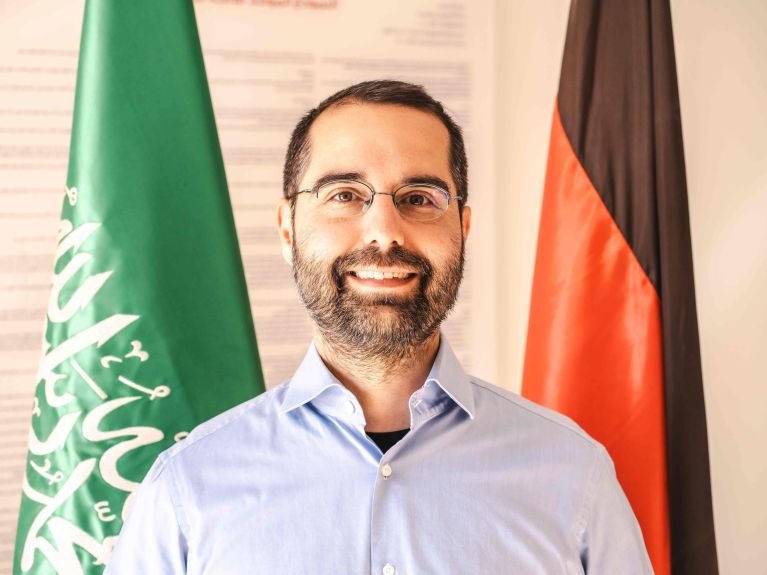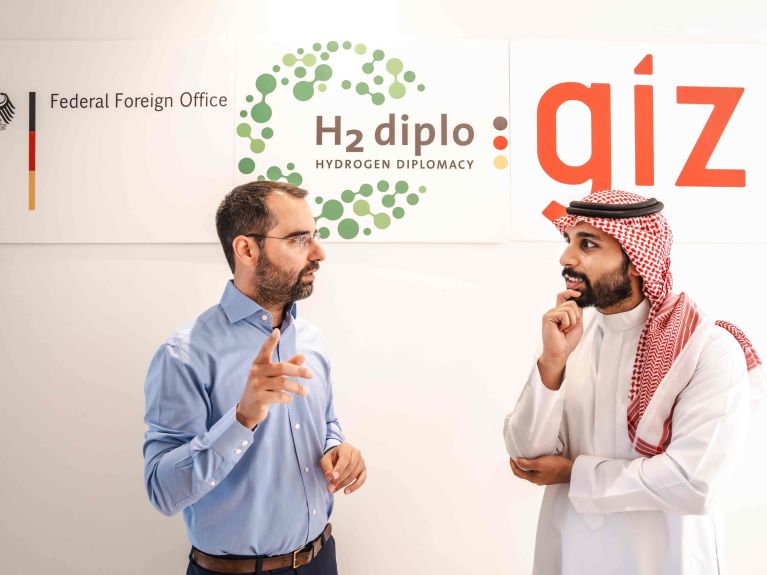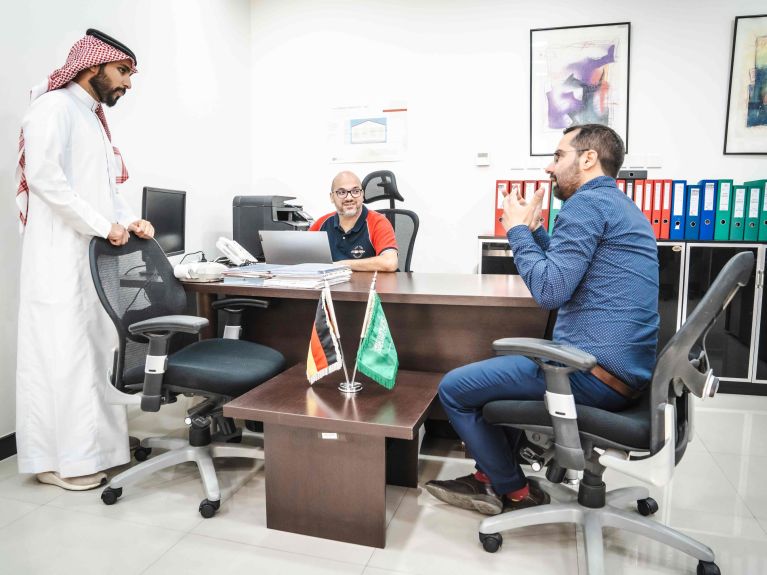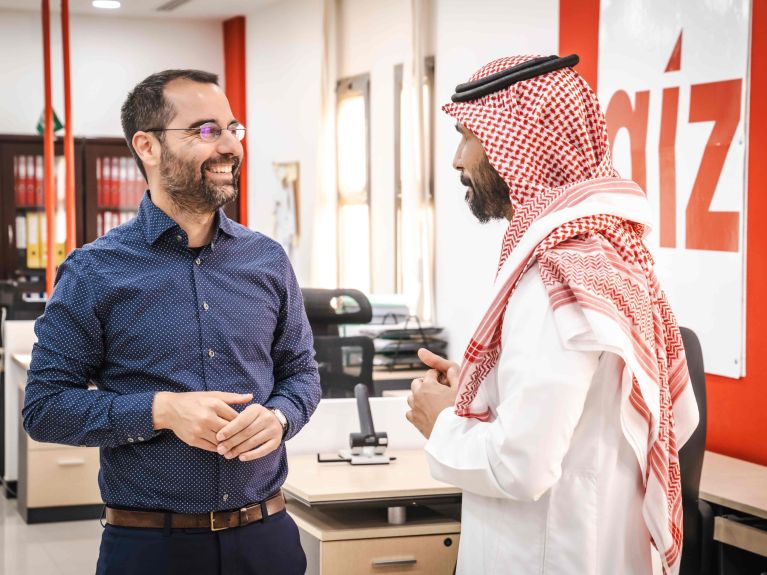The hydrogen diplomat
Quentin Blommaert heads the German hydrogen diplomacy office in Saudi Arabia and is actively involved in promoting a climate-neutral energy industry.

Practising international networking: we present individuals who symbolise Germany’s partnerships around the world. Global challenges can only be overcome by working together.
Anyone who enjoys cycling to work has a hard time in the Saudi Arabian capital of Riyadh, where temperatures typically climb to more than 40 degrees Celsius on average every day in summer. But at least new bus routes are to be introduced, and soon an underground rail service is to be provided as well, says Quentin Blommaert, who feels at home in Riyadh despite the fact that he misses the bike he left behind in his native Belgium. Blommaert is very much involved with sustainability – not just in connection with how he travels to work but when he gets there, too: he heads the German hydrogen diplomacy office in Saudi Arabia.
Hydrogen is key to the energy transition in Germany. Without it, says Blommaert, achieving decarbonisation targets will be a lot harder. This is why Germany has developed a hydrogen strategy. On behalf of the Federal Foreign Office, the German development agency GIZ GmbH is working to expand energy cooperation with key countries. Dialogue with strategic partner countries is promoted through hydrogen diplomacy offices in Angola, Kazakhstan, Kenya, Colombia, Nigeria, Oman, Ukraine and Saudi Arabia. The goal is to achieve an energy industry that is more broadly based and more low-carbon – in other words, nothing less a climate-neutral global economy.

Language and energy
It’s a big task for a small team. The “H2-diplo” office operated by GIZ is located in the Al Arid district in the north of Riyadh. On the second floor of an inconspicuous office building, Blommaert works with colleague and GIZ advisor Faris Alanezi on foreign energy policy and hydrogen diplomacy. What do these important-sounding terms actually mean? The hydrogen diplomacy offices facilitate dialogue on climate policy issues with local institutions. They prepare analyses and information documents on issues relating to geopolitics and foreign energy policy, advising companies and inviting stakeholders to take part in talks and discussion events. As the art of negotiation, diplomacy thrives on dialogue.
Blommaert has a way with words. He studied modern philology, i.e. linguistics, in Belgium before going to Germany to do a Master of Business Administration with a focus on renewable energies. “Language and energy – I think that’s a good combination. I work as a kind of energy philologist,” says Blommaert. As he puts it: it’s important to have this interface between politics and diplomacy on the one hand, where a lot of talking goes on, and energy industry and science on the other hand, which is more technical in nature. “We’ve reached a point globally where we have to communicate in real depth. We have to understand other countries and be aware of their needs. That’s something you can only achieve through dialogue.”

A need for cooperation
Energy supply is a geopolitical issue, because resources are unevenly distributed around the world. Countries like Germany are unable to meet their own energy needs from domestic resources. Saudi Arabia is blessed with natural resources – underground with hydrocarbons, oil and gas, precious and semi-precious metals, but above ground as well, with a huge amount of solar radiation, lots of wind, large areas of land and a low population density and therefore plenty of space for green energy plants. “It’s a very good match: a highly industrialised but energy-poor country like Germany meets an energy-rich and energy-savvy supplier country,” says Blommaert.
There are different kinds of resources. “Germany has an outstanding research scene and can make use of this to generate added value in a lot of industrial sectors,” says Blommaert. One key element of the cooperative approach pursued by the “H2-diplo” offices is efficient use of the material and immaterial resources available – ensuring that Saudi Arabia benefits from German expertise in research and industry, for example. Known as an oil giant, the country is now looking to become a leading nation in the field of green energy. German companies are involved in this process, too: the hydrogen diplomacy office initiates collaborative ventures in this area.

Quentin Blommaert feels at home in Riyadh. But moving there has involved some changes – not least in terms of his eating habits, for example. In a water-scarce country like Saudi Arabia, you don’t want to be making too much pasta, says Blommaert: after all, the water gets poured away when you’re finished. It’s better to opt for foods that absorb water, such as rice, couscous or bulgur, he says. Blommaert prefers a diet that is seasonal and regional, and he’s keen to adapt to his country of residence, too. So when he visits Europe, he has two things he can look forward to: his bike and eating pasta.


